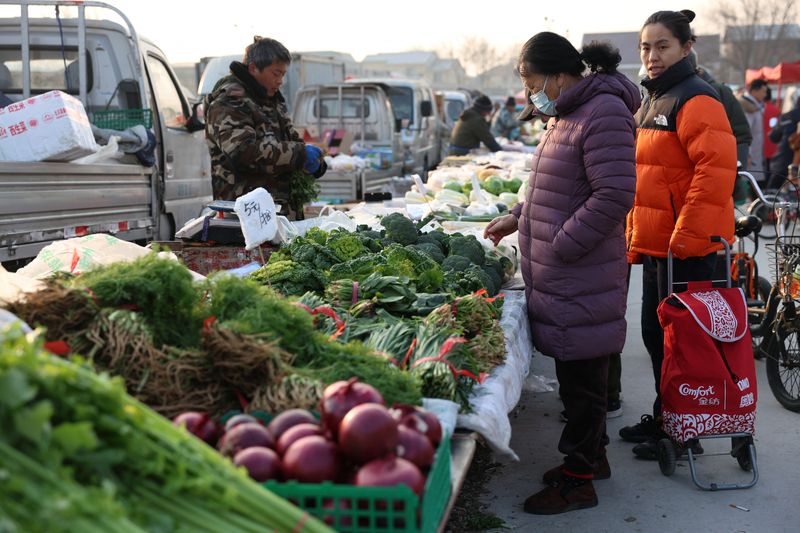BEIJING (Reuters) -China’s consumer inflation unexpectedly eased in September as producer price deflation deepens, increasing pressure on Beijing to quickly roll out more stimulus measures to revive sagging demand and shaky economic activity .
Finance Minister Lan Foan told a news conference on Saturday that there will be more “countercyclical measures” this year, but officials did not provide details on the size of the fiscal stimulus measures being prepared, which investors hope will stem deflationary pressures in the second half will enlighten the world. largest economy.
The consumer price index (CPI) rose 0.4% from a year earlier last month, up from 0.6% in August, data from the National Bureau of Statistics (NBS) showed on Sunday, with the forecast of a 0.6% increase from a Reuters poll was not achieved. economists.
The producer price index (PPI) fell at the fastest pace in six months, down 2.8% year-on-year in September, down from 1.8% the month before and below the expected 2.5% decline.
Chinese authorities have stepped up stimulus efforts in recent weeks to boost demand and help meet this year’s economic growth target of around 5.0%, although some analysts say these steps could only provide temporary relief for the economy and that there stronger measures will soon be needed.
The central bank announced in late September the most aggressive monetary support measures since the COVID-19 pandemic, including numerous steps to help lift the real estate sector out of a severe multi-year slump, including mortgage rate cuts.
With little news from Saturday’s Finance Ministry briefing, some analysts now hope that a meeting of China’s parliament, expected in the coming weeks, will reveal more specific proposals.
However, many China watchers say Beijing must also vigorously address deeper-rooted structural problems such as overcapacity and sluggish consumption.
Excessive domestic investment and weak demand have depressed prices and forced companies to cut wages or lay off workers to reduce costs.
The CPI was unchanged month-on-month, up from 0.4% in August and down from an estimated 0.4% increase.
Food prices rose 3.3% year-on-year in September, compared to a 2.8% increase in August, while non-food prices fell 0.2%, reversing the 0.2% increase in August was made.
Among non-food items, the decline in energy prices has deepened and tourism prices have moved from top to bottom, while airfares and hotel accommodations have risen, NBS said in an accompanying statement.
Core inflation, which excludes volatile food and fuel prices, stood at 0.1%, down from 0.3% in August, also signaling rising deflationary pressures.
(Reporting by Qiaoyi Li, Liangping Gao and Ryan Woo; Editing by Kim Coghil)







